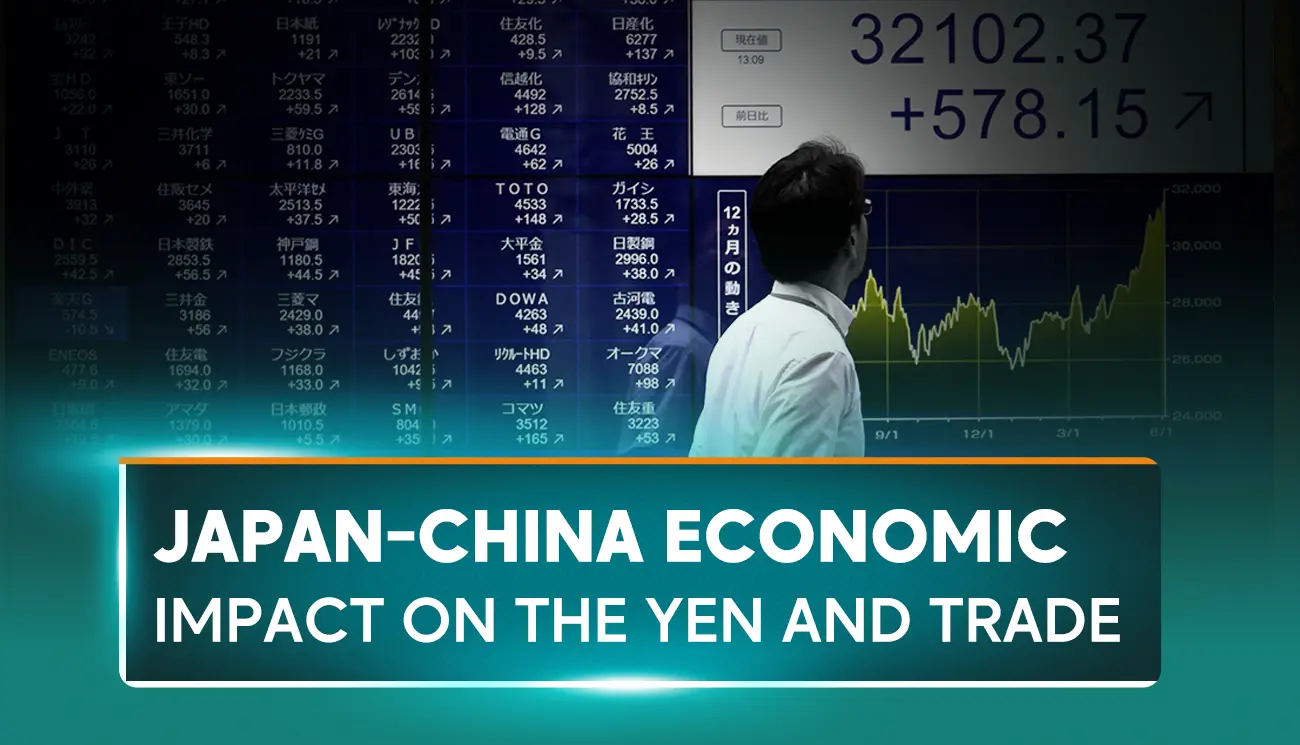Japan and China are major trading partners, and their economic relationship has a big impact on Japan’s currency, the yen, and trade.
China is Japan’s largest trade partner, and Japan exports items like machinery, cars, and electronics to China. If China’s economy slows down, Japan’s exports usually drop, which can weaken the yen. If China’s economy grows, Japan benefits from more exports, which can help keep the yen stable. The yen is also considered a “safe haven” in uncertain times, so when China faces problems, people may buy yen, making its value rise.
Political issues, like disputes between the two countries, can create uncertainty and affect trade and the yen. Trade wars, such as the U.S.-China trade conflict, can also impact Japan’s economy. For example, tariffs between China and the U.S. can increase costs for Japan but also give Japan the chance to sell more to China.
Chinese investment in Japan is growing, especially in areas like technology and real estate. More Chinese investment increases demand for the yen, making it stronger. If investment drops, the yen could weaken. China’s policies on investments also affect the yen’s value.
To manage these changes, Japan’s central bank adjusts its policies, like keeping interest rates low to boost spending and investment. However, if the yen strengthens too much, it could hurt Japanese exports, and the bank may step in to prevent this.
Japan is also trying to reduce its reliance on China by making trade deals with other countries.
In short, Japan’s economy is closely linked to China’s. Changes in China’s economy, political tensions, and Chinese investment all impact Japan’s currency and trade. Japan must manage these factors to maintain stable growth.
Outlook for the Yen in the Near Term
In the near term, the Japanese yen could see mixed movement depending on various factors. If China’s economy continues to slow down, Japan’s exports may weaken, putting pressure on the yen. However, the yen could still strengthen if global uncertainty increases, as it is often seen as a “safe haven” currency during times of risk.
The Bank of Japan’s current policies of low interest rates and quantitative easing are likely to continue in the near term, which may limit significant appreciation of the yen. However, if there are signs of global economic instability or if geopolitical tensions rise, the yen could appreciate as investors seek safer assets.
On the other hand, if China’s economic situation improves or if Japan sees stronger economic growth, demand for Japanese exports could rise, helping to stabilize the yen. With the Bank of Japan maintaining its accommodative stance, the yen may remain relatively weak compared to other major currencies, unless external factors push it higher.
Overall, the yen’s movement will depend on how the global economy, particularly China, performs in the near future and how Japan manages its economic and trade challenges.





